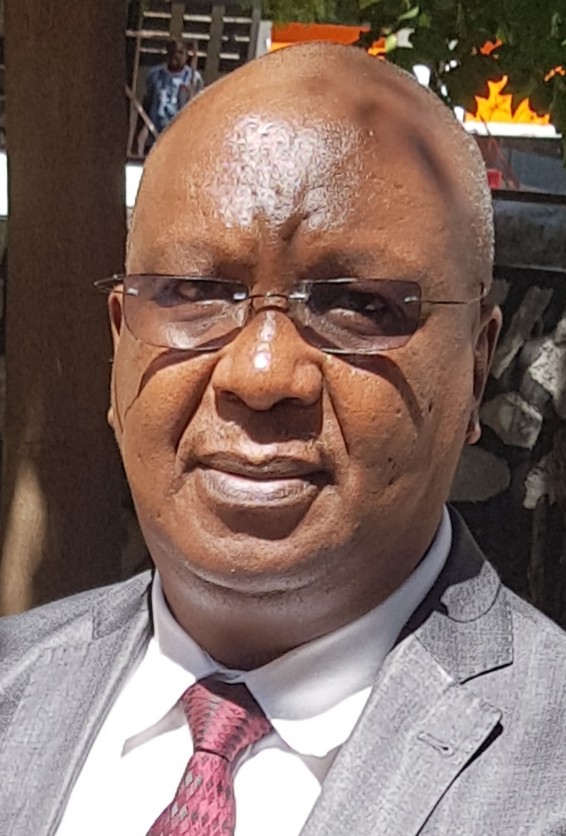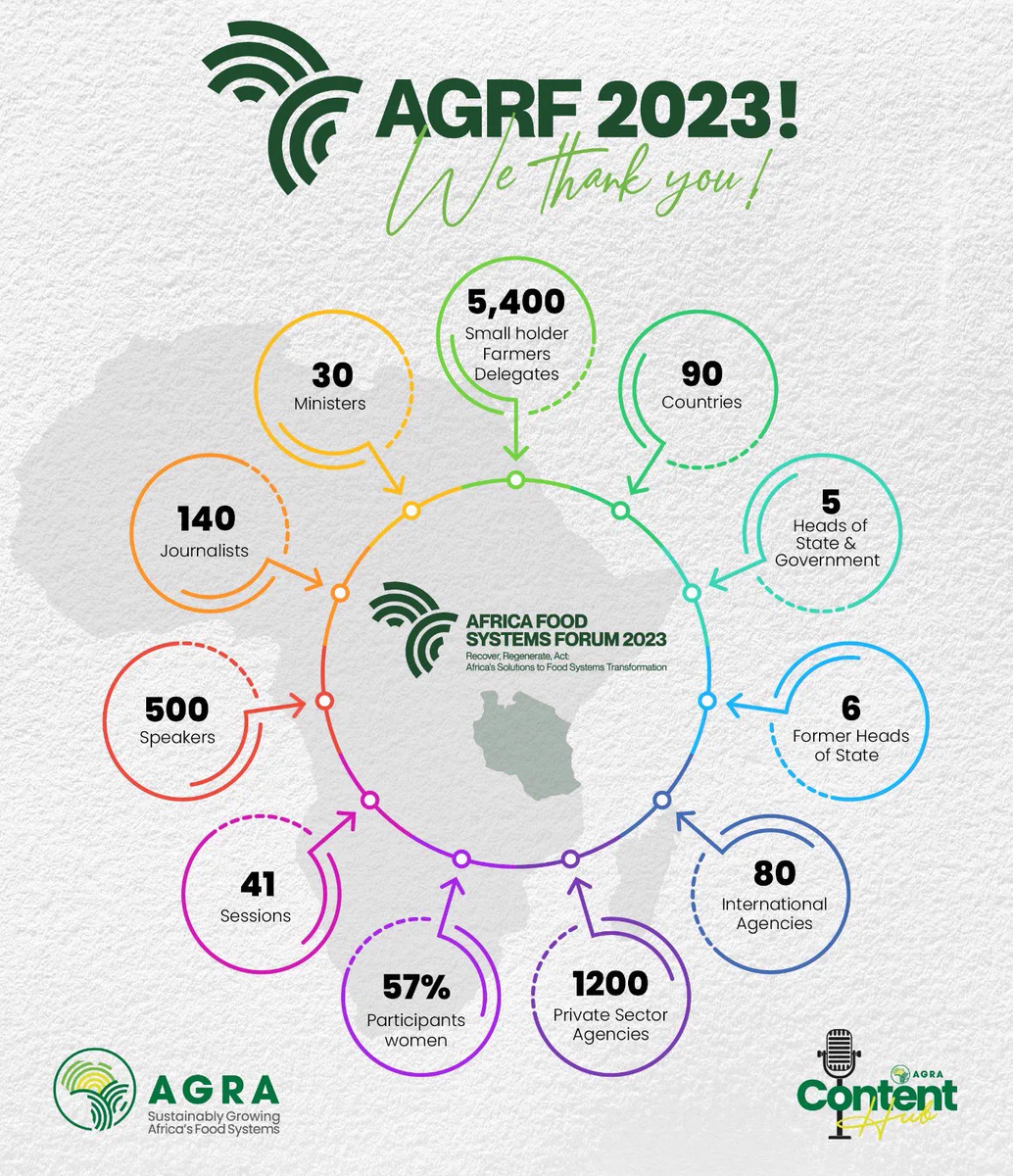Diversifying Babies’ Diets While Strengthening the Local Food Value Chain
Siny Samba, CEO of Le Lionceau, was announced as the 2023 WAYA winner at the 2023 Africa Food Systems Forum (AFS), formerly known as AGRF, in Dar es Salaam, Tanzania, on September 6, 2023. This year, the forum’s theme focused on diversity and the inclusion of women and youth in the transformation of Africa’s Food Systems, with 57% women participating in this year’s forum.
The Women Agripreneurs of the Year Awards (WAYA), now in its third year, was launched in 2021 at the Africa Food Systems Forum (formerly known as AGRF) in Nairobi, Kenya. It is an integral part of AGRA’s VALUE4HER program and is awarded annually during the Africa Food Systems Forum. These awards recognize women agripreneurs from across Africa who have excelled in various segments of the agricultural value chain and have shown remarkable innovation in their businesses. The awards aim to create visibility for successful women, serve as positive role models, stimulate innovation, and foster ambition among African women agripreneurs.
This year, Siny Samba, CEO of Le Lionceau from Senegal, was the grand prize winner and was honored for exhibiting the best innovations in the agribusiness sector across all categories. Her company, based in Dakar, Senegal, specializes in infant foods made entirely from local ingredients derived from healthy and sustainable agriculture. By combining tradition and innovation, her company’s products offer tasty baby purees inspired by Senegalese regional flavors, supporting babies during their dietary diversification with locally sourced recipes of high nutritional quality.
Ms. Samba shared her inspiring journey, which stands as a testament to the incredible potential within every individual.
Interviewer: You are the co-founder and CEO of Le Lionceau, a company that manufactures indigenous baby food in Senegal. Take us through your entrepreneurial journey.
Siny Samba: My lifelong passion for the food industry led me to pursue a career as a food processing engineer, allowing me to blend my interests, my desire to aid children, and my love for cooking. After college, I worked as an R&D engineer at Blédina, the baby food branch of the French food multinational Danone. Since I had a passion for producing food, I took a keen interest in making jams and preserves. While I was still working in France, I started to take an interest in events in Senegal, particularly in the baby food sector. I can recall taking a trip to Senegal and noticing that all the baby foods on the shelves of various supermarkets were imported. This led me to conceive the idea of starting a local baby food-producing company in my home country. I received funding and support from organizations like “Délégation générale de l’entrepreneuriat rapide des jeunes et des femmes (Der-JF),” “Women Investment Club (WIC),” “ADEPME,” “Teranga Capital,” the European Union, and other partners. This support enabled me to establish the company (Le Lionceau) in 2018, with my classmate from agricultural engineering school.
As a net food importer, Senegal is vulnerable to food insecurity and economic and political shocks, such as the effect of the Russia-Ukraine crisis on the global food supply. This has put Senegalese infants at risk.
Interviewer: How is Le Lionceau trying to address this challenge?
Siny Samba: Babies born in Senegal every year are especially vulnerable, as the country imports up to 90 percent of its baby food. In Senegal, the available baby food is not based on local ingredients and creates an imbalance in local value chains. In 2017, I returned to Senegal after working for a baby food company in France. As a food processing engineer, I studied infant nutrition and observed the distinct lack of diversity in baby food on Senegal’s grocery store shelves. I also noticed that smallholder farmers often had difficulty selling what they produced, leading to crop losses. To address these problems, Le Lionceau started to expand the selection on store shelves with nutrition-packed, locally sourced baby food based on local recipes while addressing some of Senegal’s smallholder agriculture challenges.
We provide educational workshops to help parents understand nutrition and improve their babies’ health. We go to urban and rural areas to train and sensitize people about the importance of the first 1,000 days, including the importance of breastfeeding and how mothers can use local crops to make food for their babies. In collaboration with local farmers, we are transforming what would have been wasted into a valuable food product, reducing their losses by 10 percent. We hire 30 employees and buy crops from 5,000 farmers in cooperatives. We have empowered 1,500 local women, including participants in nutritional education workshops and the women’s groups that become part of Le Lionceau’s supply chain. Our baby food products have reached more than 30,000 babies in Senegal, and we hope to nourish thousands more.
Interviewer: How is Le Lionceau reducing the need for imported products and making traditional Senegalese baby foods accessible to more people?
Siny Samba: Food loss in the region is high due in part to the lack of local processing facilities to buy fresh fruits and vegetables. As Le Lionceau, we have been able to source more products from local and sustainable farms, with a focus on produce that would otherwise go unused. For instance, up to 60 percent of Senegalese mangoes are lost before harvest. To combat this, we procure these mangoes for purees. In addition to having a lower risk of food loss due to improper handling, we are creating a market for foods that have been diverted from being lost in the field. Our baby food products, which are from indigenous crops such as millet, fonio (a type of grain), sweet potato, moringa (a type of plant), ditakh (a type of wild fruit), bouye (baobab fruit), solom (a type of tamarind), papaya, mango, and niebe (black-eyed pea), are of high nutritional value. As a result, we have been able to reduce the need for importing products and make traditional Senegalese baby foods accessible to more people in the country.
Interviewer: What are some of the challenges that you face in your business, and how are you mitigating them?
Siny Samba: Challenges arise at various points in our value chain. For instance, we encounter difficulties when sourcing raw materials from smallholder farmers in terms of both quantity and quality. Meeting the exacting quality standards required for baby food presents a significant challenge, particularly concerning organic raw materials. To address these issues, we’ve implemented initiatives such as supporting smallholder farmers in sustainable organic farming techniques and collaborating with rural women’s groups to enhance raw material pre-processing. Furthermore, we conduct educational workshops for parents on nutrition and health in the local language.
Interviewer: By winning this year’s WAYA awards, what does that mean for Le Lionceau?
Siny Samba: As a result of participating in the event, I had the opportunity to network and connect with other industry professionals, policymakers, investors, and potential partners. These connections can lead to collaboration opportunities, access to resources, and new markets. Additionally, the forum offered a platform for sharing insights, best practices, and innovations within the agricultural sector. This will enable us to enhance our operations and strategies. The forum and awards enabled us to build reputation and visibility. This has opened more doors and opportunities to showcase our products and success story, enabling us to gain recognition and credibility among stakeholders. We also hope to attract investors and financial institutions looking to support innovative and impactful agricultural initiatives in Africa. Maybe, we might secure investment or funding to accelerate our growth and expansion. In addition, this award will allow us to increase our production capacity. We are also going to invest in new facilities and recruit more people, especially youth.
Interviewer: What are your future plans, and what advice would you give young entrepreneurs in Africa?
Siny Samba: I have a lot of plans for the business. Our projections show that with about $2.5 million, we can grow the business in the next 5 to 10 years to reach millions of babies in West Africa and beyond. We shall also target the diaspora market and more partnerships. Further, we intend to collaborate with various organizations and develop more affordable and accessible locally sourced-baby food for various markets.
My advice to the youth and women is to venture into agribusiness because there are opportunities. In Africa, we have local resources, so, just go, it may not be easy, but there are a lot of opportunities. The market is huge, you just need to tell yourself, “I have what it takes” and you have to take one step at a time, and in the end, you will be very proud of what you achieve.


